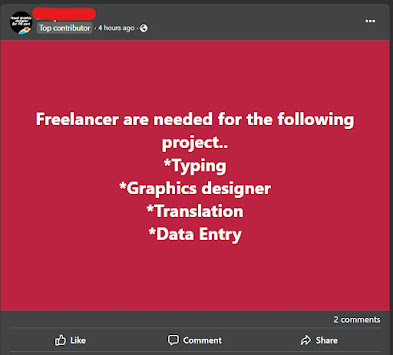Are You Sure You Want to Use GPT-4o? It's Free But There Are Risks
I'll be honest – I've fallen out of love with ChatGPT. Sure, the idea of generative AI is still mind-blowing, but the novelty has worn off. Plus, I've started to question the old adage: "If something's free, you're the product." Turns out, this rings especially true for tools like GPT-4o.
What seems like a "free" AI playground is actually harvesting your precious data – every word, voice recording, and image you share. So, what exactly are you giving up for those AI-powered chats and creations? Let's unravel the hidden costs lurking behind GPT-4o's "free" facade.
What You Get, What You Give
Don't get me wrong, GPT-4o is impressive. It's like having a super-smart assistant who can write emails, summarize articles, brainstorm ideas, and even whip up some digital art – all with just a few prompts. But like any good magician, GPT-4o has a few tricks up its sleeve. And the biggest trick of all? It's not just taking your requests; it's taking your data.
Every time you type a message, record a voice note, or upload an image, GPT-4o is gobbling it up. This isn't just about remembering your preferences or tailoring responses; it's about feeding the AI beast to make it bigger, better, and smarter. Think of it as a never-ending buffet where you're the main course.
Now, think about this: What if you're inputting confidential data? Maybe it's company statistics, or perhaps you're asking it to help draft a response to a sensitive email. Could this information end up being used to train the model and potentially leak out? It's a question worth pondering before you hit that "enter" key.
The Data Hunger Games
OpenAI isn't the only one playing this data-hungry game. It's like a digital gold rush, with tech giants like Microsoft, Meta, and Google scrambling to collect as much user data as possible. Why? Because high-quality training data is the secret sauce for making AI models smarter and more capable.
Think of it like this: AI models are like hungry caterpillars, and your data is their leafy feast. The more they eat, the bigger and stronger they grow. But just like caterpillars can strip a tree bare, these companies are voraciously consuming massive amounts of user data.
One example of this data frenzy is when OpenAI reportedly transcribed over a million hours of YouTube videos to train their models. That's a lot of cat videos and makeup tutorials! While Google (YouTube's parent company) didn't take legal action, likely due to their own data-harvesting habits, it shows just how far these companies are willing to go to feed their AI hunger.
Privacy? What Privacy?
You might be thinking, "No biggie, I can just opt out of data sharing, right?" Well, not so fast. While OpenAI does give you the option to disable chat history and prevent your conversations from being used for training, it's like trying to find a hidden treasure map. The instructions are buried deep within the settings, and it's not exactly user-friendly.
It's almost as if they're making it intentionally difficult to protect your privacy. Why the hassle? Perhaps because you're using it for free. But is it really worth the risk of having your personal information used to train a model that could potentially be used for purposes you didn't consent to? That's a question worth considering.
And guess what? If you do manage to opt out, you'll lose access to your past conversations. So, it's a choice between privacy and convenience. Talk about a dilemma!
More Than Just Your Data
It's not just your own data you need to worry about. Ever asked GPT-4o to summarize a news article or analyze a research paper? Or maybe you shared a screenshot of a funny tweet? Guess what? OpenAI now has access to that content too.
Think of it like inviting a friend over for dinner and they end up raiding your fridge, pantry, and wine cellar. Except in this case, the "friend" is an AI model, and the "food" is any third-party content you bring into the conversation.
This creates a whole other layer of problems. When users unknowingly share copyrighted material, OpenAI ends up using it to train its models, essentially profiting off someone else's work. It's like a digital version of plagiarism, but on a massive scale.
The Fightback
Content creators and publishers aren't just sitting back and watching their work get gobbled up by AI models. They're fighting back, and they're not pulling any punches. Some are putting up digital roadblocks to prevent companies from scraping their data, while others are updating their terms of service to explicitly forbid the use of their content for AI training.
One big player stepping into the ring is Sony Music. They recently fired a warning shot at over 700 AI companies and streaming platforms, letting them know they won't tolerate unauthorized use of their music for AI training. It's a clear message that content creators are ready to defend their intellectual property rights in this brave new world of AI.
What's a User to Do?
So, what can you do to protect yourself in this wild west of AI data collection? Here are a few tips:
Think Before You Share: Before you input anything into GPT-4o, consider whether you're comfortable with it being used for AI training. If it's sensitive or confidential, maybe find a different tool.
Go Incognito (Sort Of): OpenAI does offer a way to opt out of having your data used for training. It's not easy to find, but it's there. Look for the option to disable chat history in the settings. Just remember, you'll lose your conversation history if you do this.
Stay Informed: Keep an eye on news and updates about AI and data privacy. The more you know, the better equipped you'll be to make informed decisions about how you use these tools.
Demand Better: Let companies like OpenAI know that you care about your privacy. Speak up, leave feedback, and advocate for clearer, more user-friendly privacy options.
Remember, knowledge is power. The more aware you are of the risks, the better you can protect yourself and your data in this ever-evolving AI landscape.
The Bottom Line
GPT-4o is a powerful tool, no doubt. But it's important to remember that it comes with a hidden price tag: your data. While it's tempting to get caught up in the excitement of AI advancements, don't forget to pause and consider the potential risks.
Stay informed, be mindful of what you share, and demand better privacy protections from these companies. After all, you deserve to know what you're getting into before you hit that "enter" key.
The future of AI is bright, but it's up to us to ensure that our privacy isn't lost in the process.
.webp)
.png)


Comments
Post a Comment